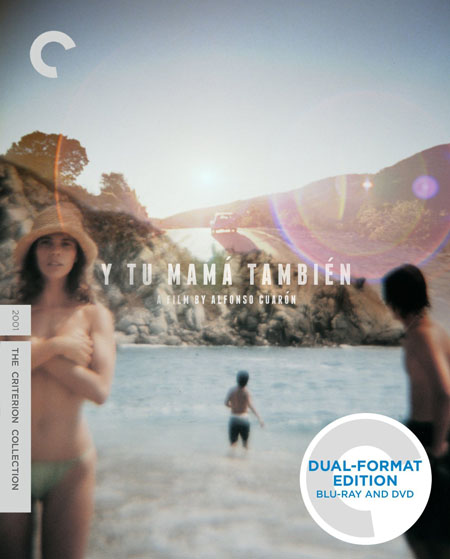
THE MEXICAN NEWER
WAVE
By Raymond Benson
At
the turn of the Millennium, several film directors from Mexico were gaining
attention and acclaim—guys like Alfonso Arau, Alejandro Gonzales Iñárritu,
Guillermo del Toro, and this year’s Oscar-winner as Best Director, Alfonso Cuarón
(for Gravity). Cuarón’s
career trajectory has been, for me, the most interesting of the bunch. He broke
into the international scene with the 2001 coming-of-age drama, Y Tu Mamá
También, and followed that with, of all things, the megahit Harry Potter and the Prisoner of Azkaban,
which, I argue, is the best of all eight Harry Potter movies. The terrific
dystopian thriller Children of Men followed
that, and then came Gravity.
Other
than the superb handling of each specific film’s material, there isn’t much
similarity between these pictures, and yet it’s apparent that Cuarón
brings an auteur sensibility to his work. This is most evident in the more
personal Y Tu Mamá También, a film Cuarón
made in his native Mexico with no Hollywood studio in sight. The director and
his brother Carlos Cuarón claim in the terrific new extra of recent
interviews about the making of the film that the picture is not
autobiographical. However, a much of the world in which our two high school-age
protagonists exist is similar to the more middle-to-upper-class upbringing the
Cuaróns experienced.
Tenoch
and Julio (honestly played by Diego Luna and Gael GarcÃa
Bernal), are typical, urban, horny hormone-raging teenagers ready to graduate
from school and step out into adulthood. But for that to happen, a rite of
passage must occur to shake the boys out of decidedly vulgar adolescence,
mischief-making, and carefree attitudes.
Enter
an older unhappy married woman, Luisa—Maribel Verdú, in a tour de force performance—whose tragic
secrets motivate her to recklessly accompany the boys on a road trip to “the
beach.†The journey is a rite of passage for her, too, but the teens don’t know
this. What happens on that trip will change the two boys’ lives forever. In
essence, the film is a frank and modern Summer
of ’42 meets Jules and Jim. In
fact, Y Tu Mamá También does seem to be
inspired by the French New Wave—not only Jules
and Jim but also, as revealed by the Cuarón brothers in the
documentary, Godard’s Masculin Féminin. The detached, omniscient voice-over
narration in Y Tu Mamá evokes these 1960s classics in a more contemporary context.
And, like Godard’s films, Y Tu Mamá contains commentary on the then-current
political situation in Mexico, when the ruling party of 70-plus-years was voted
out. The upheaval, while not directly affecting our three characters, is
constantly in the background.
The
film is also sexually explicit. The picture was released in the USA unrated,
which means it otherwise would have received the problematic NC-17. The raw
naturalism of the sex scenes is indeed shocking, but without it the movie would
not have the impact that it does. As it is, Y
Tu Mamá También packs a punch. The Big
Reveal about Luisa at the end of the story can possibly change in an instant a
viewer’s reaction to the film up to that point. Along the way, you will have
laughed, cringed, laughed some more, and observed a loss of innocence as it
often occurs—unexpectedly and with deeply emotional prices to pay.
All
three leads are exceptional. Cuarón was fortunate to
employ actors who courageously bared their souls—as well as their skins—to make
this truly remarkable, highly recommended film.
Criterion’s
new, restored 2K digital film transfer is gorgeous (the cinematography is by
the great Emmanuel Lubezki). The Blu-ray features a 5.1 surround DTS-HD Master
Audio soundtrack. Extras include vintage and new behind-the scenes
documentaries featuring the director, cast, and others; Carlos Cuarón’s
very funny short film You Owe Me One (2002),
a new interview with philosopher Slavoj Žižek
about the film’s social and political aspects, and deleted scenes.
This one’s a keeper.
CLICK HERE TO ORDER FROM AMAZON